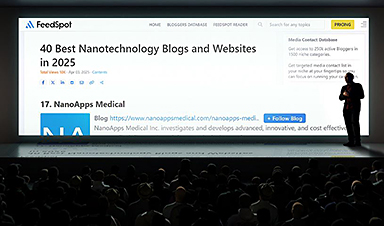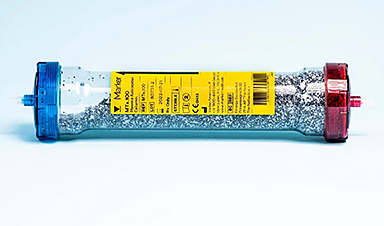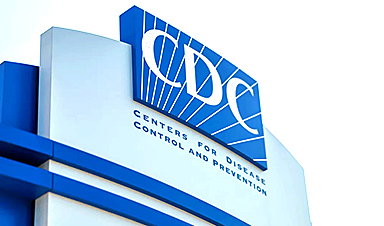The study, conducted at the virtual urgent care clinic Cedars-Sinai Connect in LA, compared recommendations given in about 500 visits of adult patients with relatively common symptoms – respiratory, urinary, eye, vaginal and dental.
A new study led by Prof. Dan Zeltzer, a digital health expert from the Berglas School of Economics at Tel Aviv University, compared the quality of diagnostic and treatment recommendations made by artificial intelligence (AI) and physicians at Cedars-Sinai Connect, a virtual urgent care clinic in Los Angeles, operated in collaboration with Israeli startup K Health. The paper was published in Annals of Internal Medicine and presented at the annual conference of the American College of Physicians (ACP). This work was supported with funding by K Health.
Prof. Zeltzer explains: “Cedars-Sinai operates a virtual urgent care clinic offering telemedical consultations with physicians specializing in family and emergency care. Recently, an AI system was integrated into the clinic algorithm based on machine learning that conducts initial intake through a dedicated chat, incorporates data from the patient’s medical record, and provides the attending physician with detailed diagnostic and treatment suggestions at the start of the visit -including prescriptions, tests, and referrals. After interacting with the algorithm, patients proceed to a video visit with a physician who ultimately determines the diagnosis and treatment. To ensure reliable AI recommendations, the algorithm-trained on medical records from millions of cases, only offers suggestions when its confidence level is high, giving no recommendation in about one out of five cases. In this study, we compared the quality of the AI system’s recommendations with the physicians’ actual decisions in the clinic.”
The researchers examined a sample of 461 online clinic visits over one month during the summer of 2024. The study focused on adult patients with relatively common symptoms-respiratory, urinary, eye, vaginal and dental. In all visits reviewed, the algorithm initially assessed patients, provided recommendations, and then treated them by a physician in a video consultation. Afterwards, all recommendations from both the algorithm and the physicians were evaluated by a panel of four doctors with at least ten years of clinical experience, who rated each recommendation on a four-point scale: optimal, reasonable, inadequate, or potentially harmful. The evaluators assessed the recommendations based on the patients’ medical histories, the information collected during the visit, and transcripts of the video consultations.
The compiled ratings led to interesting conclusions: AI recommendations were rated as optimal in 77% of cases, compared to only 67% of the physicians’ decisions; at the other end of the scale, AI recommendations were rated as potentially harmful in a smaller portion of cases than physicians’ decisions (2.8% of AI recommendations versus 4.6% of physicians’ decisions). In 68% of the cases, the AI and the physician received the same score; in 21% of cases, the algorithm scored higher than the physician; and in 11% of cases, the physician’s decision was considered better.
The explanations provided by the evaluators for the differences in ratings highlight several advantages of the AI system over human physicians: First, the AI more strictly adheres to medical association guidelines-for example, not prescribing antibiotics for a viral infection; second, AI more comprehensively identifies relevant information in the medical record-such as recurrent cases of a similar infection that may influence the appropriate course of treatment; and third, AI more precisely identifies symptoms that could indicate a more serious condition, such as eye pain reported by a contact lens wearer, which could signal an infection. On the other hand, physicians are more flexible than the algorithm and have an advantage in assessing the patient’s real condition. For example, suppose a COVID-19 patient reports shortness of breath. A doctor may recognize it as a relatively mild respiratory congestion in that case. In contrast, based solely on the patient’s answers, the AI might unnecessarily refer them to the emergency room.
Prof. Zeltzer concludes: “In this study, we found that AI, based on a targeted intake process, can provide diagnostic and treatment recommendations that are, in many cases, more accurate than those made by physicians. One limitation of the study is that we do not know which physicians reviewed the AI’s recommendations in the available chart, or to what extent they relied on these recommendations. Thus, the study only measured the accuracy of the algorithm’s recommendations and not their impact on the physicians. The study’s uniqueness lies in the fact that it tested the algorithm in a real-world setting with actual cases, while most studies focus on examples from certification exams or textbooks. The relatively common conditions included in our study represent about two-thirds of the clinic’s case volume. Thus, the findings can be meaningful for assessing AI’s readiness to serve as a decision-support tool in medical practice. We can envision a near future in which algorithms assist in an increasing portion of medical decisions, bringing certain data to the doctor’s attention, and facilitating faster decisions with fewer human errors. Of course, many questions still remain about the best way to implement AI in the diagnostic and treatment process, as well as the optimal integration between human expertise and artificial intelligence in medicine.”
Other authors involved in the study include Zehavi Kugler, MD; Lior Hayat, MD; Tamar Brufman, MD; Ran Ilan Ber, PhD; Keren Leibovich, PhD; Tom Beer, MSc; and Ilan Frank, MSc., Caroline Goldzweig, MD MSHS, and Joshua Pevnick, MD, MSHS.
- Dan Zeltzer, Zehavi Kugler, Lior Hayat, et al. Comparison of Initial Artificial Intelligence (AI) and Final Physician Recommendations in AI-Assisted Virtual Urgent Care Visits. Ann Intern Med. [Epub 4 April 2025]. doi:10.7326/ANNALS-24-03283, https://www.acpjournals.org/doi/10.7326/ANNALS-24-03283
News
Psychologists explore ethical issues associated with human-AI relationships
It's becoming increasingly commonplace for people to develop intimate, long-term relationships with artificial intelligence (AI) technologies. At their extreme, people have "married" their AI companions in non-legally binding ceremonies, and at least two people [...]
When You Lose Weight, Where Does It Actually Go?
Most health professionals lack a clear understanding of how body fat is lost, often subscribing to misconceptions like fat converting to energy or muscle. The truth is, fat is actually broken down into carbon [...]
How Everyday Plastics Quietly Turn Into DNA-Damaging Nanoparticles
The same unique structure that makes plastic so versatile also makes it susceptible to breaking down into harmful micro- and nanoscale particles. The world is saturated with trillions of microscopic and nanoscopic plastic particles, some smaller [...]
AI Outperforms Physicians in Real-World Urgent Care Decisions, Study Finds
The study, conducted at the virtual urgent care clinic Cedars-Sinai Connect in LA, compared recommendations given in about 500 visits of adult patients with relatively common symptoms – respiratory, urinary, eye, vaginal and dental. [...]
Challenging the Big Bang: A Multi-Singularity Origin for the Universe
In a study published in the journal Classical and Quantum Gravity, Dr. Richard Lieu, a physics professor at The University of Alabama in Huntsville (UAH), which is a part of The University of Alabama System, suggests that [...]
New drug restores vision by regenerating retinal nerves
Vision is one of the most crucial human senses, yet over 300 million people worldwide are at risk of vision loss due to various retinal diseases. While recent advancements in retinal disease treatments have [...]
Shingles vaccine cuts dementia risk by 20%, new study shows
A shingles shot may do more than prevent rash — it could help shield the aging brain from dementia, according to a landmark study using real-world data from the UK. A routine vaccine could [...]
AI Predicts Sudden Cardiac Arrest Days Before It Strikes
AI can now predict deadly heart arrhythmias up to two weeks in advance, potentially transforming cardiac care. Artificial intelligence could play a key role in preventing many cases of sudden cardiac death, according to [...]
NanoApps Medical is a Top 20 Feedspot Nanotech Blog
There is an ocean of Nanotechnology news published every day. Feedspot saves us a lot of time and we recommend it. We have been using it since 2018. Feedspot is a freemium online RSS [...]
This Startup Says It Can Clean Your Blood of Microplastics
This is a non-exhaustive list of places microplastics have been found: Mount Everest, the Mariana Trench, Antarctic snow, clouds, plankton, turtles, whales, cattle, birds, tap water, beer, salt, human placentas, semen, breast milk, feces, testicles, [...]
New Blood Test Detects Alzheimer’s and Tracks Its Progression With 92% Accuracy
The new test could help identify which patients are most likely to benefit from new Alzheimer’s drugs. A newly developed blood test for Alzheimer’s disease not only helps confirm the presence of the condition but also [...]
The CDC buried a measles forecast that stressed the need for vaccinations
This story was originally published on ProPublica, a nonprofit newsroom that investigates abuses of power. Sign up to receive our biggest stories as soon as they’re published. ProPublica — Leaders at the Centers for Disease Control and Prevention [...]
Light-Driven Plasmonic Microrobots for Nanoparticle Manipulation
A recent study published in Nature Communications presents a new microrobotic platform designed to improve the precision and versatility of nanoparticle manipulation using light. Led by Jin Qin and colleagues, the research addresses limitations in traditional [...]
Cancer’s “Master Switch” Blocked for Good in Landmark Study
Researchers discovered peptides that permanently block a key cancer protein once thought untreatable, using a new screening method to test their effectiveness inside cells. For the first time, scientists have identified promising drug candidates [...]
AI self-cloning claims: A new frontier or a looming threat?
Chinese scientists claim that some AI models can replicate themselves and protect against shutdown. Has artificial intelligence crossed the so-called red line? Chinese researchers have published two reports on arXiv claiming that some artificial [...]
New Drug Turns Human Blood Into Mosquito-Killing Weapon
Nitisinone, a drug for rare diseases, kills mosquitoes when present in human blood and may become a new tool to fight malaria, offering longer-lasting, environmentally safer effects than ivermectin. Controlling mosquito populations is a [...]




















